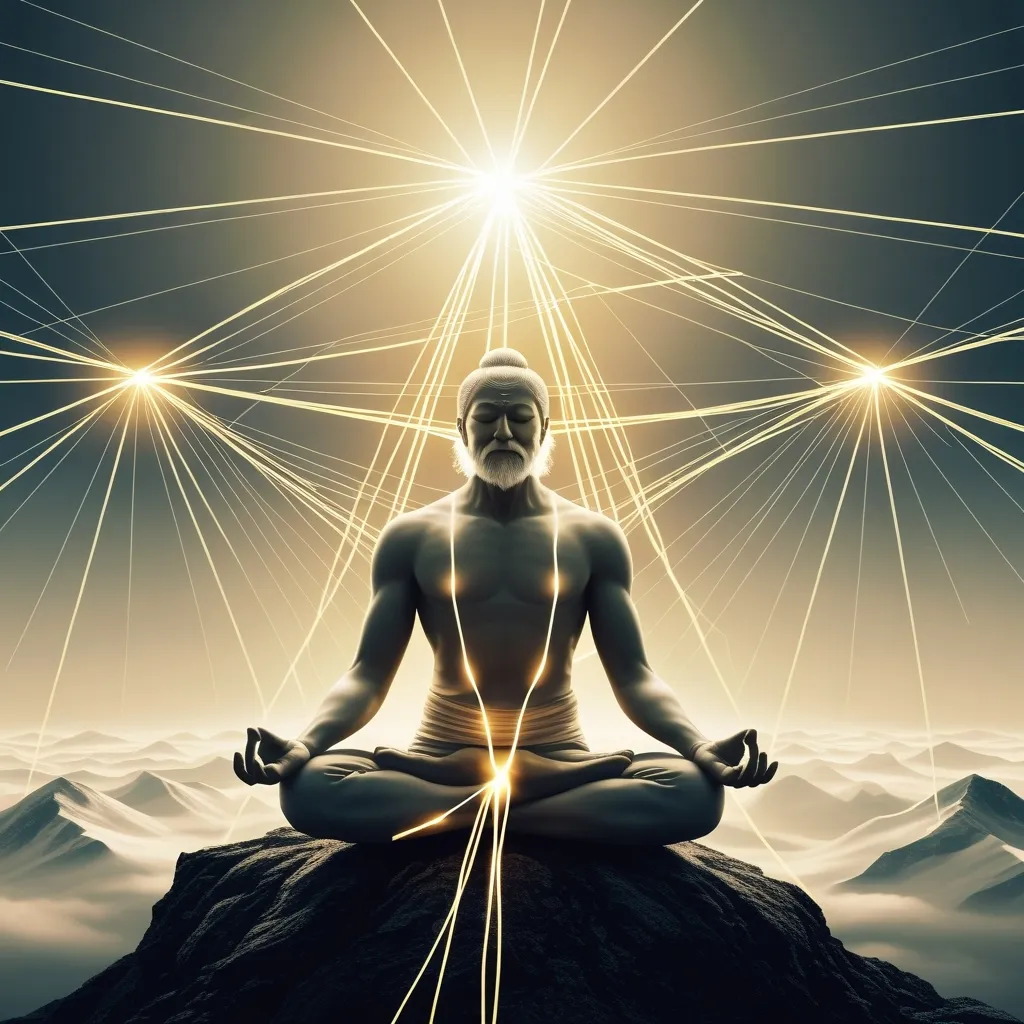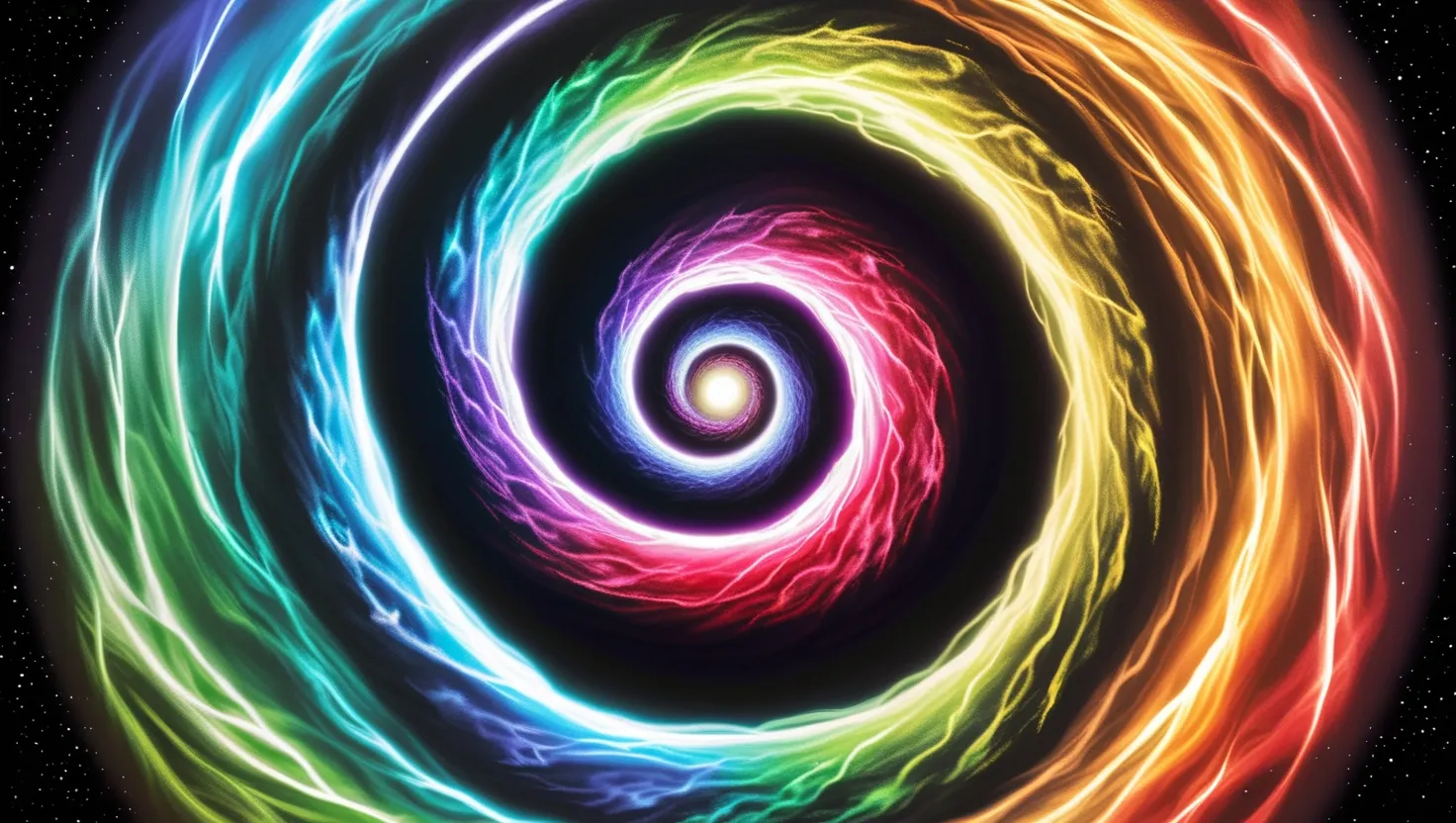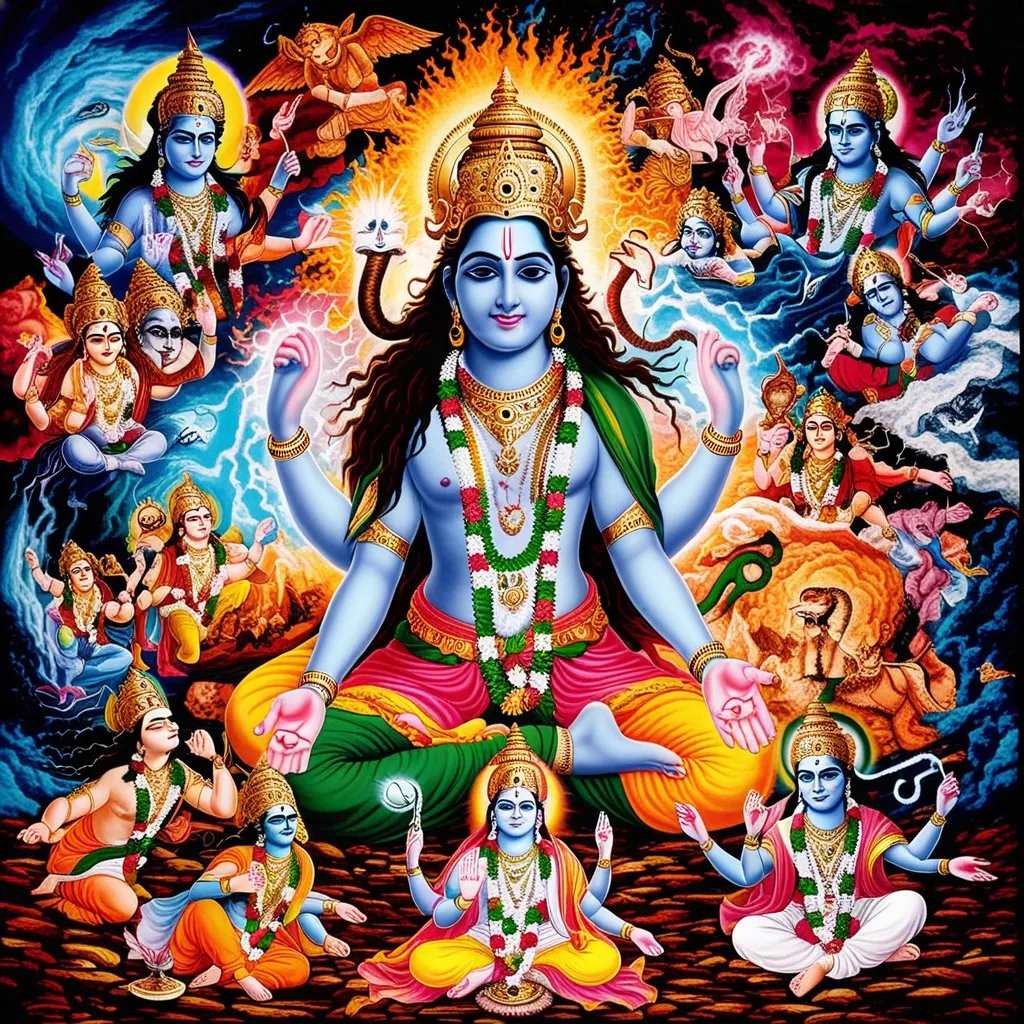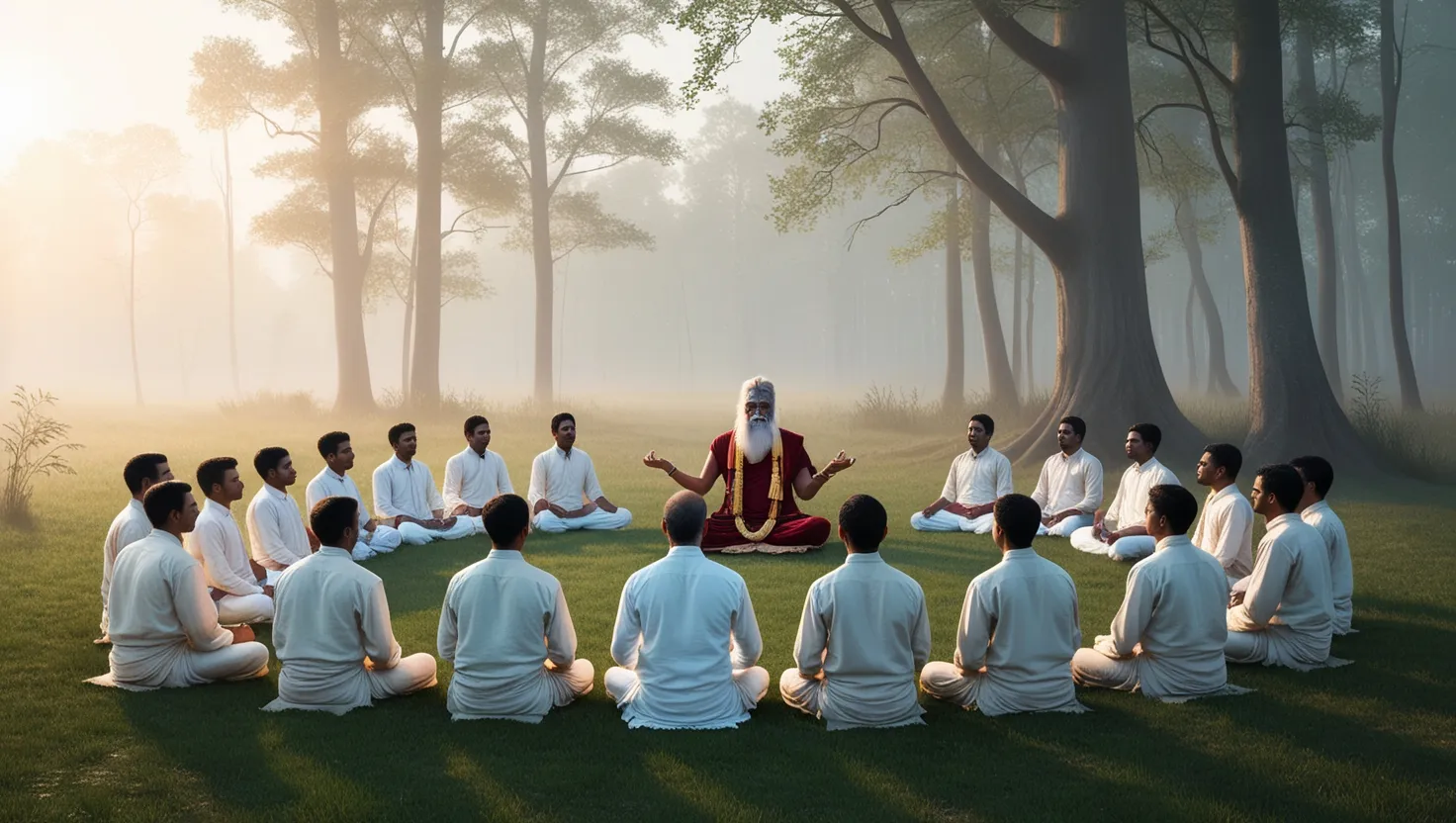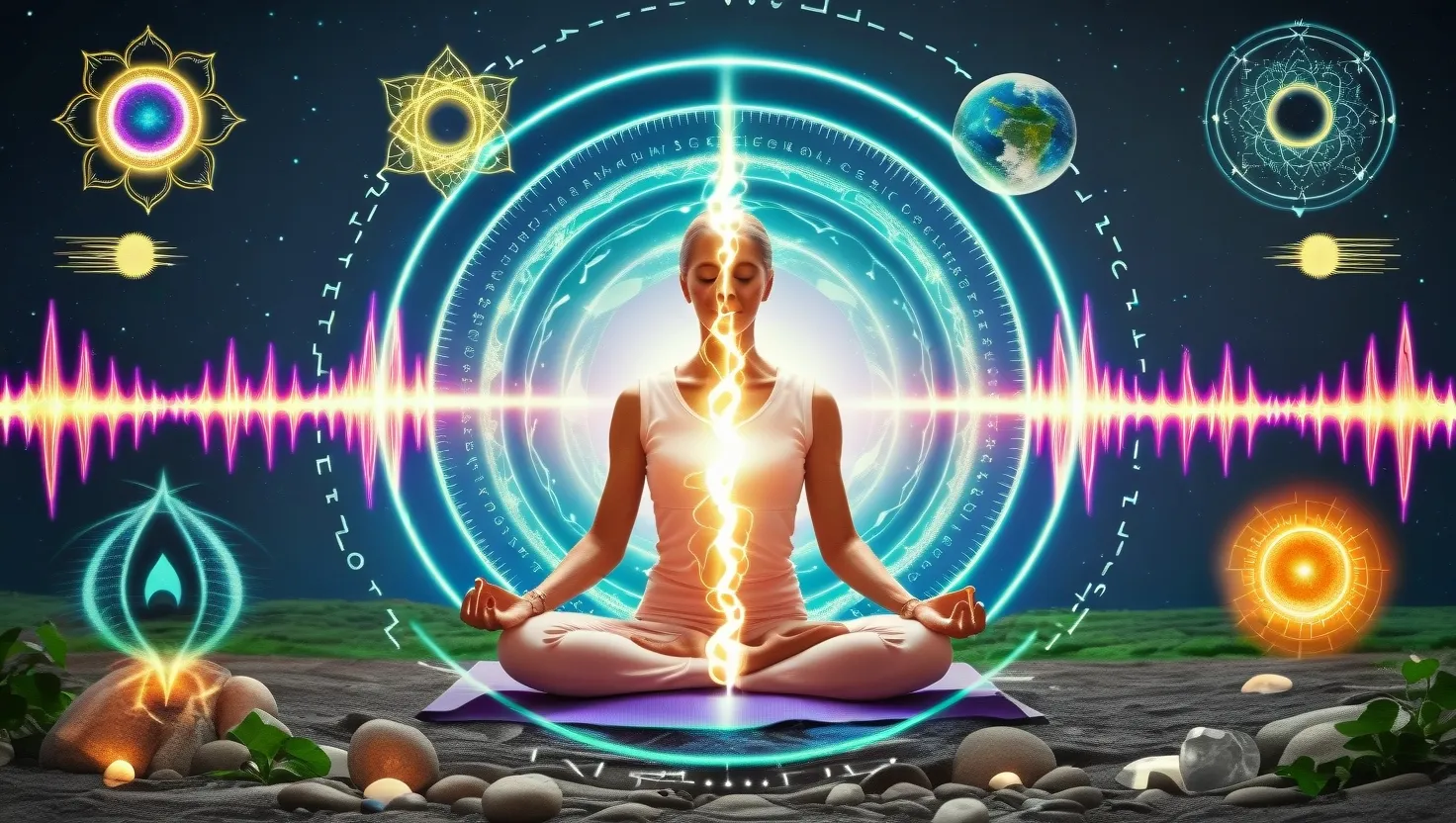Ah, the internet - that magical web of interconnected computers that’s become as essential to modern life as coffee and cat videos. But did you know some folks claim ancient Hindu sages predicted this digital wonderland centuries ago? Let’s dive into this fascinating blend of ancient wisdom and modern tech, shall we?
Picture this: you’re scrolling through your social media feed, and suddenly you come across a post claiming that the internet was foretold in ancient Hindu texts. Your first reaction might be to snort-laugh and keep scrolling. But hold up a sec - there’s more to this story than meets the eye.
Now, I’m not saying our ancestors were sitting around in loincloths, posting selfies on ye olde Instagram. But there’s something intriguing about the idea that ancient Hindu sages might have glimpsed the future of global communication.
Let’s start with the Mahabharata, that epic tale of gods, heroes, and epic battles. In this ancient text, there’s a character named Sanjaya who had the ability to see and hear events happening far away. He’d give play-by-play updates of the great battle of Kurukshetra to the blind king Dhritarashtra. Sound familiar? It’s kinda like live streaming a sports event, minus the annoying commercials.
Some folks have latched onto this as evidence that ancient Hindus had internet-like technology. But let’s pump the brakes on that idea for a moment. While Sanjaya’s ability is pretty darn cool, it’s more likely a case of divine power rather than dial-up.
Now, let’s talk about the Bhrigu Samhita. This ancient text is like the ultimate fortune-telling playbook, supposedly containing detailed predictions about every person who’ll ever live. It’s said to describe people’s past, present, and future lives in mind-boggling detail. If true, it’d make Google look like a cheap carnival psychic.
But here’s the thing - the Bhrigu Samhita is more about the evolution of human consciousness than predicting the next big tech trend. It’s not exactly spelling out “In the year 2023, people will argue with strangers on Twitter while sitting on the toilet.”
Speaking of predictions, Hindu scriptures are chock-full of prophecies about the future. The Bhagavata Purana, for instance, talks about the Kali Yuga - the age we’re living in now. It predicts that people will be judged by their wealth, and hypocrisy will be seen as a virtue. Sound familiar? It’s like they peeked into the comment section of any YouTube video.
But again, these predictions are more about society’s moral decline than the rise of TikTok dance challenges. The ancient sages were more concerned with spiritual matters than whether we’d one day have the ability to order pizza without talking to another human being.
Now, you might be wondering, “Why do people make these claims about ancient Hindus predicting the internet?” Well, it’s a mix of national pride, the human love for mysteries, and maybe a dash of misunderstanding.
India has a rich history of scientific and mathematical achievements. The concept of zero? That’s all India, baby. The decimal system? Yep, that too. So it’s not a huge leap to think, “Hey, if they figured out zero, maybe they knew about zeros and ones too!”
Plus, let’s face it - we humans love a good mystery. The idea that ancient sages might have foreseen our digital age is pretty darn exciting. It’s like finding out your great-great-grandpa invented the smartphone but forgot to patent it.
But here’s where we need to put on our critical thinking caps. Just because ancient texts describe advanced communication doesn’t mean they’re talking about fiber-optic cables and Wi-Fi routers. It’s important to understand these texts in their historical and cultural context.
When we read about Sanjaya’s ability to see distant events, we need to remember that this is part of a mythological narrative. It’s not meant to be a technical manual for building the next Facebook. It’s a story that explores themes of duty, destiny, and divine intervention.
Similarly, the prophecies in texts like the Bhagavata Purana aren’t meant to be taken as literal predictions of future technology. They’re more like warnings about the direction society might take if we lose sight of our spiritual values.
That’s not to say these ancient texts aren’t valuable or insightful. Far from it! They offer profound wisdom about human nature, consciousness, and the cyclical nature of time. It’s just that their insights are more philosophical than technological.
Think of it this way: If you showed a smartphone to someone from the 1950s, they might think it was magic. But that doesn’t mean that 1950s sci-fi writers who imagined handheld communication devices were secret time travelers. They were just really good at imagining possibilities based on the technology of their time.
In the same way, ancient Hindu sages had an incredible ability to understand human nature and the patterns of society. They could extrapolate from what they knew to imagine how things might change in the future. But they were working with the concepts and knowledge of their time, not peeking into a crystal ball that showed them cat memes and Netflix.
So, did Hindu sages predict the internet? Probably not in the way some people claim. But they did understand something fundamental about human nature - our need to connect, to share information, to expand our consciousness beyond our immediate surroundings. And in that sense, maybe they did foresee something like the internet, even if they couldn’t have imagined the technical details.
The real value of these ancient texts isn’t in their supposed prediction of modern technology. It’s in their timeless wisdom about human nature, spirituality, and the interconnectedness of all things. In a way, that’s even more impressive than predicting the internet.
So the next time you’re doom-scrolling through social media at 2 AM, take a moment to appreciate the irony. Those ancient sages might not have predicted your late-night Twitter habits, but they probably would have had some choice words about the wisdom of arguing with strangers instead of getting a good night’s sleep.
In the end, whether or not Hindu sages predicted the internet doesn’t change the fact that we’re living in an age of unprecedented global communication. Maybe instead of debating whether they saw it coming, we should focus on using this amazing technology in ways that would make those wise old sages proud. Who knows? Maybe we’ll end up creating something even they couldn’t have imagined.
